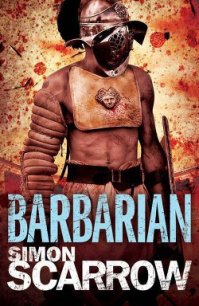Young bloods - Scarrow Simon (читать книги полностью без сокращений txt) 📗
'Yes, sir.'
'Good.' Napoleon nodded. 'Carry on, Junot.'
He made his way past the men and headed over to the headquarters tent. Inside, a pair of campaign desks, piled high with paperwork, stood at the back. A large flask of red wine and some pewter cups rested on the end of one table and Napoleon crossed to them, and poured himself a drink. It seemed to have gone well enough. He had given the men some sense of direction, an awareness of the significance of their role in the siege, and therefore some sense of their responsibility.That might be enough to drive them on. The trick of it was to keep them focused and that meant giving them some kind of victory as soon as possible. Something to vindicate the hard work he would make them do. His mind raced for a moment, then he quickly made his way to the tent flaps and stared down the slope towards Toulon. A number of the enemy warships lay at anchor in the west arm of the inner harbour, below the hill of Bregaillon.
Napoleon smiled to himself.Very well.That's where he would begin.
Chapter 75
Two days later, just as the first pale light of day was fringing the horizon, Napoleon glanced down the length of the sight of the twenty-four-pounder cannon.The ship he had chosen as a target was little more than a dark blur in the harbour below.The Aurore, a frigate, was one of the vessels captured by the English when Toulon had surrendered itself to the Royal Navy. The range was very long and Napoleon knew that the chances of actually hitting the frigate were small, but that was not the point of this morning's demonstration. Napoleon was serving notice on the enemies of France that their defences were not nearly as secure as they might think. More importantly, he was providing proof to his superiors that he was the kind of officer who seized the initiative.
Even as his men had set about bringing order to the camp and artillery park, Napoleon had dispatched his officers to find trench tools and wicker gabions for the construction of the battery. Captain Marmont, a young man just as keen as Napoleon to prove himself, had been sent to the coastal battery at Cap Negre to commandeer the twenty-four-pounders Napoleon needed for the battery. There were only light pieces in the army's artillery train, and they would be almost useless for siege work.
Marmont discovered that the guns were mounted on naval carriages, totally unsuitable for the rough tracks leading back to Toulon. So the guns had to be dismantled and heaved on to heavy wagons for the journey. The hard physical labour of drawing the wagons had exhausted Marmont's men and mules, but there had been no rest for them when they returned to the camp. Every available man was toiling away to complete the first of Captain Buona Parte's batteries.Work continued through the night, in the wan orange glow of small fires and torches. Napoleon had decided he would break with the normal tradition of assigning letters to each battery. Instead, he would give them names – something the men could relate to more closely. The first would be called the Battery of the Mountain.
As soon as the ramparts and embrasures were complete, sweating, grunting men dragged the thick timbers of the gun platform into position and packed them down into the earth, just as Marmont arrived with his guns. Napoleon hurried over, torch held above his head to examine them.
'They'll do for now, but we'll have to fit them to standard carriages as soon as we can.' Napoleon patted Marmont on the shoulder and smiled. 'Well done! The Royal Navy's going to have quite a shock when the first twenty-four-pounder balls start raining down on them!'
'I'm sure they will, sir,' Marmont replied, and then looked uneasy. 'Trouble is, we could only find a few shot and no gunpowder. The Cap Negre battery has been out of commission for some months, almost stripped bare.'
'Damn!' Napoleon clenched his fist. 'Then you'll have to set off and find some ammunition at first light. There's a battery at Bau Rouge. Try that.'
'Yes, sir.'
As Marmont turned to bellow orders to his men Napoleon checked his timepiece and bit his lip. The previous evening, he had sent an invitation to Saliceti, Freron and Carteaux to come and observe the Battery of the Mountain open fire on the British fleet. Even if all five guns were ready in time, there would only be enough ammunition for a handful of salvoes before they ran out. That would not look good. Napoleon realised the only solution was to use one gun.That way he could make the ammunition last and he could personally supervise the loading and aiming of the piece.
So, as the light slowly strengthened, Napoleon focused his attention on preparing the leftmost gun, carefully selecting the best cannon balls for the opening shots. As the crew finished loading the first round and Napoleon sighted the barrel, Marmont came hurrying up to him. He nodded back over his shoulder.
'The representatives are coming. Are we ready, sir?'
Napoleon nodded. 'As ready as we'll ever be. Is the general with them?'
'I didn't see him.'
So Carteaux had decided to snub him, Napoleon smiled.That was no surprise. Napoleon had achieved more in two days than the general had in several weeks – something that representatives Saliceti and Freron were bound to appreciate.
Looking up, Napoleon saw the dim outlines of two horsemen cresting the ridge above the battery before they trotted down towards him. He advanced to meet them, saluting as they reined in. Saliceti looked around at the earthworks with a keen eye.
'You've done well, Buona Parte.Very well indeed.' He glanced at Freron. 'Wouldn't you agree, citizen?'
Freron nodded, and for the first time he smiled at Napoleon. 'Seems I misjudged you, young man.'
Napoleon struggled not to wince at the backhanded compliment, and just bowed his head in modest acknowledgement. 'Thank you, Citizen Freron.'
'How long before you are ready to fire?'
'We were just about to start.' Napoleon waved his hand towards a small platform that had been erected beside the battery. 'If you'd like to observe from that platform, you'll have a good view of proceedings.'
As Saliceti and Freron took up their position, Napoleon crossed over to the gun he had selected and nodded to the corporal in charge of the crew. 'I'll fire the weapon.'
'Yes, sir.'
Taking the portfire from one of the gunners, Napoleon looked through the embrasure at the frigate down in the harbour. Now the light was good enough to make out clearly the masts, spars and even the tracery of the rigging. The air was still and the surface of the sea was smooth and glassy. A handful of tiny figures were moving on the deck of the Aurore. Nothing could have looked quite so peaceful as the frigate, Naploleon smiled grimly. It was time to shatter the peace and remind the Royal Navy that they were at war. He stepped back from the embrasure and called out, 'Stand clear of the gun!'
The crew stepped away as Napoleon took up position to one side of the gun carriage. He took a breath and lowered the portfire towards the end of the fuse protruding from the vent.The red glowing end touched the fuse. At once there was a hiss, a fizz and then a deep booming roar as a bright jet of flame burst from the dark muzzle of the cannon. A thick cloud of acrid greasy smoke immediately billowed round the gun and caught in the throats of the gun crew. Thrusting the portfire at the corporal, Napoleon darted forward to the embrasure and scrambled on to the earth rampart to try to observe where the shot fell.
He strained his eyes, fixing on the frigate, and the sea around it, all the while conscious that the representatives were keenly watching the performance of the new commander of artillery. After several tense seconds a distant spout of water lifted up from the sea, some distance from the frigate and off to one side. The spray quickly spattered down into the expanding ripple of water on the surface of the harbour, and then all sign of the point where the ball had fallen disappeared.




